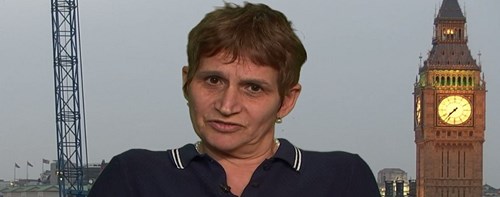On our media training courses we talk to delegates about the importance of trying to exert some control early in an interview.
This can be done through techniques such as bridging and by the spokesperson getting straight to examples in their initial answers rather than waiting to be asked.
And sometimes we find an interview which illustrates this advice perfectly.
The interview in question saw Dr Clare Gerada, a GP and former chair of the Royal College of GPs, appear on Channel 4 News earlier this week to discuss NHS proposals to cut down prescriptions. Click on the image below to watch the interview.
Faced with a potentially tricky first question which suggested the plans would mean the most vulnerable in society would have to pay for their medication, Dr Gerada briefly acknowledged the point by saying ‘I think we will have to have a safety net’, before name-checking her own organisation (something many spokespeople forget to do).
She then steered the conversation, while sounding completely natural, back to her message about why it is important to look at this funding question, and added credibility to it by instantly using a powerful example which the majority of the audience would be able to relate to.
She said: “I’ve just gone online and I’ve seen the cost for a month of an anti-histamine for hay fever, which many of my patients will be asking for a prescription for. For a month’s treatment it is less than a pound if you buy it yourself.
“If I provide you with a prescription, when all costs are taken into account, it will cost the state about £40 and it will take up an appointment with me or one of my staff, so we have to make some sensible decisions.”
Writing this blog through streaming eyes and a permanently running nose, I would personally love to find out where I could buy a month’s hay fever treatment for £1. But assuming you can buy the medication at that price - and the presenter Alex Thomson did not see the need to challenge her on it - this was a textbook opening answer.
In fact, such was its strength that even Mr Thomson was moved to remark she had set-out her argument ‘very clearly’.
As well as the skill that had gone into this first answer, it is also worth noting that in the same week the Plain English Campaign had called out the NHS for its use of jargon, Dr Gerada had used simple language and stayed well clear of the ‘gobbledygook’ which had so irked the campaign (and patients).
It is also worth mentioning that this was a down-the-line interview – a format which many spokespeople on our media training courses admit to finding alien and uncomfortable. But Dr Gerada seemed relaxed and assured despite being at a considerable disadvantage to the other interviewee (Sarah Sleet from Coeliac UK) who was in the studio.
So what about the rest of the interview?
Well in truth it was relatively short, possibly because Dr Gerada had swiftly shut down the potentially negative angle about how the vulnerable would pay for medication and avoided the potential for any real disagreement with the other guest by suggesting celiac sufferers could buy gluten free products at the supermarket and be reimbursed, rather than getting through prescription.
She delivered a strong sound bite suggesting the medications the proposals are looking at are things people should be able to ‘buy alongside their coffee, alongside their toothpaste as part of their self-care’.
And there was another example to counter the fears of those concerned about the changes when we learnt that when Dr Gerada began her career ‘you could prescribe washing powder’. This may sound like a humorous throw-away line, but actually, by talking about her experience, she adds to her credibility and authority as a spokesperson.
It was in summary a very strong performance – but I still need to track down that cheap hay fever medication.
Media First are media and communications training specialists with over 30 years of experience. We have a team of trainers, each with decades of experience working as journalists, presenters, communications coaches and media trainers.
Click here to find out more about our journalist led media training and social media training.
Subscribe here to be among the first to receive our blogs.



